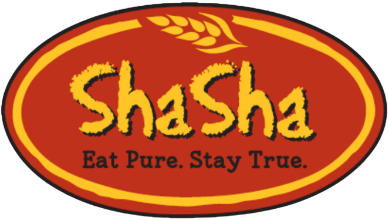 Despite the fact that your brain only accounts for 2% of your body weight, it consumes up to 20% of your daily calorie requirement. If you want your brain to function like a finely-tuned engine, you have to keep it well fed. But what exactly does your brain eat? The brain is a picky eater, but there are foods that help it to function well. This information is of great import if you want to knock it out of the park when you are writing an exam, attending an important class or meeting or giving a presentation.
Despite the fact that your brain only accounts for 2% of your body weight, it consumes up to 20% of your daily calorie requirement. If you want your brain to function like a finely-tuned engine, you have to keep it well fed. But what exactly does your brain eat? The brain is a picky eater, but there are foods that help it to function well. This information is of great import if you want to knock it out of the park when you are writing an exam, attending an important class or meeting or giving a presentation.
What happens to my brain when I don’t eat?
Your brain runs on glucose and, when you are not providing it with a steady supply, you will have trouble concentrating, feel tired and sleepy and experience memory loss. Brain cells need twice the energy that other cells need and, since neurons can’t store glucose, your brain relies on you for a steady fuel supply. If you didn’t have time to eat breakfast before rushing off to work this morning, your vital 10 a.m. meeting with the boss is going to go in one ear and out the other.
Sources of healthy glucose
Like most things in life, glucose comes in a healthy version (the one you find in natural foods) and an unhealthy version (like the one you find in candy and refined sugar). Good sources of healthy glucose are grains, fruits and vegetables. When you consume refined sugars, you get a glucose boost that’s a little too much for your brain to handle. Too much glucose also negatively affects memory and brain functioning.
The top ten foods to feed your brain
 Beets: This little red veggie ball of goodness is packed with things your brain goes wild for, especially the nitrates in beets which improve blood flow to the brain.
Beets: This little red veggie ball of goodness is packed with things your brain goes wild for, especially the nitrates in beets which improve blood flow to the brain.
Whole grains: These contain Vitamin B6 and Folate which improve blood flow to the brain. You can find whole grains in bran, whole wheat, oatmeal, brown rice and wheat germ.
Wild salmon: Contains essential fatty acids (most notably Omega-3) and it is a good source of protein.
Sage: There’s a reason this herb’s name is a synonym for smart! Sage prevents acetylcholine, a vital neurotransmitter involved in learning and memory, from breaking down.
Akai berries and blueberries: Packed with anti-oxidants, vitamins and protein, these berries pack a punch. Akai berries also contain omega-3 fatty acids.
Sardines: These little guys are packed with EPA and DHA; omega-3 acids which improve communication between cells in the brain and regulate neurotransmitters responsible for concentration.
Eggs: Egg yolks provide protein and choline. Choline helps to build neurotransmitters and proteins are great fuel for the brain.
Green leafy veggies: Especially spinach, kale and cabbage are packed with vitamins B6, B12, Iron and Folate.
Flax Seeds: A serving of flax seeds is the best source of alpha-linolenic acid which helps the cerebral cortex perform at its best.
Nuts: Great sources of Omega-3 and Omega-6 fatty acids which lift your mood. They also contain thiamine and magnesium which help to improve memory. Walnuts are especially good for your brain!

